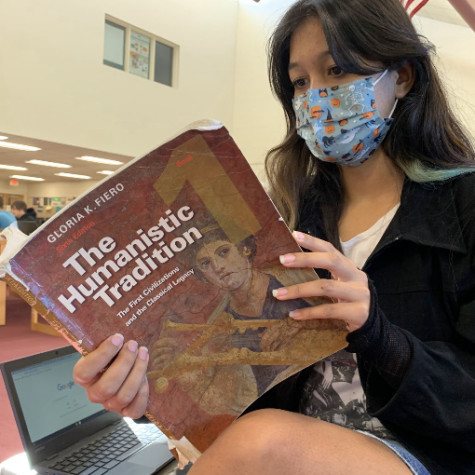Iowa Governor Kim Reynolds signed a new law into effect, namely Senate File 496 on May 26, 2023. A key inclusion of this new law is the mass book ban swiping books off of library shelves across the state.
The book ban, only a portion of this expansive new law, details restrictions on all works of literature with depictions or descriptions of sex, including mentions of nudity and other implications of various sexual activities. This law is effective for grade levels K-12 across the state.
The details of this new law describe the context in which sexual implications are problematic, as well as certain literary exemptions to the ban’s conditions. The law also includes prohibitive measures to ensure its proper execution, including punishments for administrators that disobey its requirements.
Since going into effect July 1, the bill has garnered mixed reactions among teachers, administrators and parents, as well as critics on both sides of the political aisle. The bill’s seemingly arbitrary stipulations open up the possibility of a larger-than intended ban.
Certain arbitrary exemptions included in the bill have raised concerns over its true intentions, and its lack of clarity leaves questions lingering regarding how to go about in the law’s application. Many debate over the necessity of this law, particularly in high schools, where mature content is an integral part of numerous classes’ curricula.
One topic of debate lies within the law’s description. Iowa senators explicitly rejected the notion that sexual implications need to be graphic in order to be subject to a ban, thus generalizing the requirements for a book’s removal. SF 496 simply states that all books including implications, no matter how brief, of sexual acts are not appropriate for students, and are therefore subject to removal.
So much as a reference to nudity or minor sexual acts will now constitute a ban of the book entirely. This broad ban will force hundreds of books off of shelves, despite most of which revolving around non-sexual themes.
Books like “The Color Purple” by Alice Walker, “A Farewell to Arms” by Ernest Hemingway, “Sophie’s Choice” by William Styron and “1984” by George Orwell, despite all having non-explicit storylines, will be banned in compliance with the law.
Another troubling detail of SF 496 is that sexually explicit content defined by this law includes all depictions or mentions of sexual assault. Powerful stories with topics of sexual assault will now be banned from libraries, classrooms, and curricula.
“To Kill a Mockingbird” by Harper Lee is an integral part of the English curriculum at high schools across the United States, and is taught in a majority of high school English courses. The book touches on a variety of topics including racism, southern culture and morality, and a subplot within the book involves a trial over a rape accusation.
The description of the alleged rape in the book goes no further than the word itself, yet it is enough to ban the book from classrooms across Iowa altogether. What was intended to be a thought-provoking, reflective story about how communities and cultures can function in unity and division is reduced to just another explicit book unfit for high school students, as determined by the new law. A key lesson in literature and history, erased from classrooms at the mention of one singular word.
Bridgette Exmen, a former English teacher in Mason City, Iowa commented on the generalization of two vastly different topics. “We’ve been compelled to lump together childhood sexual assault and sexual violence with pornography and remove Maya Angelou’s ‘I Know Why the Caged Bird Sings’ and Margaret Atwood’s ‘The Handmaid’s Tale.’”
And this is the basis of many of the arguments over disputed books. Ones with the briefest explicit content are subject to removal, despite all else that they may offer. Observers of the new law consider the possibility that legislators are simply taking the wrong messages from these books, and misconstruing their intentions to begin with.
This law not only intends to remove explicit content from schools, but directly from curriculums. AP Language and Composition is a course offered at schools across the state, and numerous books within its curriculum are subject to the ban.
AP Language and Composition teacher Dr. Lynne Lundberg is one of many teachers expected to alter their curriculum to comply with the new law. “It is one of many examples of an unfunded law. Who is paying the librarian who now has to sort through hundreds of books in compliance with the law? Who is paying the teachers who now have to completely rework their class curriculum?” The law evidently comes with unintended expectations, considering teachers and librarians will be forced to accommodate the law without additional compensation.
In addition, Lundberg addresses the necessity, or, lack thereof, of the new law. “AP Lang is meant to be a college level class. There is no content in this class written for a teen audience.” She explains, “That being said, the perfect place to deal with these mature and complex concepts is a formal, academic environment, yet it will be the one place it is not allowed. The law is simply overprotective. If a book has never offended anyone, it probably doesn’t have a lot to say.”
Another topic of discussion relevant to the new law is its necessity – is this mass-filtration of literature in high schools necessary? Many argue that high school students need not be shielded from ‘sexually-explicit’ books, despite the minimum offense for such a label being as minimal as kissing in some cases. It is in question amongst critics whether or not such displays are corruptive for high school students, and if it is possible that this law will ultimately do more harm than good.
Senior Muhan Basnet comments on the forthcoming ban on books within PV’s library and libraries across the state. “I don’t think it’s necessary that these books are banned. High school students are mature enough to read ‘explicit’ scenes in books and be able to extract the intentions behind them.” She adds, “I think it’s a student’s right to determine what kind of books he or she is comfortable reading, and the books that are part of the curriculum at school are not inappropriate enough to be worth banning.”
A third, widespread conflict pertaining to the law is that of diversity within banned literature. Statistics from CNN show that roughly a third of the titles at risk to be banned focus on topics such as racism or include main characters of color, and approximately 26% of the titles have LGBTQ+ themes and characters.
But despite the widespread banning of books, worthy or not, there remain a small number of exceptions. Religious texts, such as the Bible, remain in school libraries despite the ban. In fact, legislators made an explicit exemption for religious texts, though they evidently involve often vulgar sexual references. Moreover, stories like Romeo and Juliet remain in classrooms, despite its equally vulgar sexual content.
Banning a disproportionate number of LGBTQ+ stories, African American biographies and the like, yet maintaining that exceptions be held for religious texts and Shakespeare only adds to the ambiguity of the law. Moreover, this ambiguity applies beyond just the ban’s implementation.
The law’s phrasing includes rather ambiguous insinuations of potential punishments for school administrations that fail to administer the ban adequately. A report from PEN America describes a rather intimidating clause in the bill. “Vague language in the laws regarding how they should be implemented, as well as the inclusion of potential punishments for educators who violate them, have combined to yield a chilling effect.”
The biggest threat this law presents is its lack of clarity. When a law is written without clear, distinguished rules and protocols as to how it is to be enforced, it leaves room for misinterpretation. Schools are expected to implement the law’s stipulations, yet if the law is written with little clarity to begin with, as well as having seemingly arbitrary exceptions, how are schools expected to comply? And moreover, if teachers are found to be defying the law, they are subject to face consequences, including fines and even termination at a second offense.
The book ban presents a threat to high schools across the state by dictating the kinds of books available for students to read. Students will be deprived of various classic and significant stories entrenched in historical lessons, soon to be eradicated from libraries and classrooms. The law will monopolize what kinds of books students can read, and therefore what kind of information they can obtain.
Students and teachers alike will feel the consequences of the implementation of this law. Lundberg gave a final word on the matter:.“Literature is not merely reading comprehension practice; rather, great literature gives us the opportunity to understand and explore the lives of people unlike us and situations we have not yet faced. By reading great literature, we develop empathy and critical thinking, vital skills for a life well lived.”
SF 496 went into technical effect July 1 meaning books will be removed from classrooms across the state, though administrators will not be penalized for using banned books in the classroom until Jan 1, 2024.















Bella • Sep 17, 2023 at 11:51 pm
I think it is unfair to teachers that use certain books to teach their classes. They now have to make changes to their plans in order to follow this new law and it could become a problem if they had a certain book they needed to use that breaks that law.
Prothsa Shekar • Sep 14, 2023 at 5:39 pm
I never knew that our Iowa Governor Kim Reynolds has signed Senate File 496, banning K-12 literature with sex depictions or descriptions, sparking debate due to vague language and potential punishments. This is the most shocking thing I have heard.
Jamilyn Puryk • Sep 12, 2023 at 8:46 am
This article was very insightful to read. I was never even aware of the ambiguous rules for Shakespeare and religious texts, but not for important texts from other cultures. It’s a shame because some of my favorite books I’ve ever read were in my AP lang class last year, and I feel bad that Dr. L will have to go through all of the trouble to modify her curriculum for her students that need to read insightful texts to do well on the AP exam.